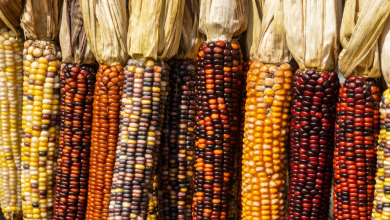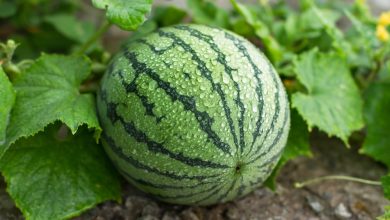Buying plants: Seedlings, Pros and cons.

Very good to all Agrohuerters. The purchase of already formed horticultural plants, seedlings, is a very useful alternative for those of you who are starting to cultivate a garden or do not have the time or skill to take care of a seedbed… But like everything, buying your plant already formed or seedling has its drawbacks positive and negative, so before you decide to start with your garden I leave you this recommendation:
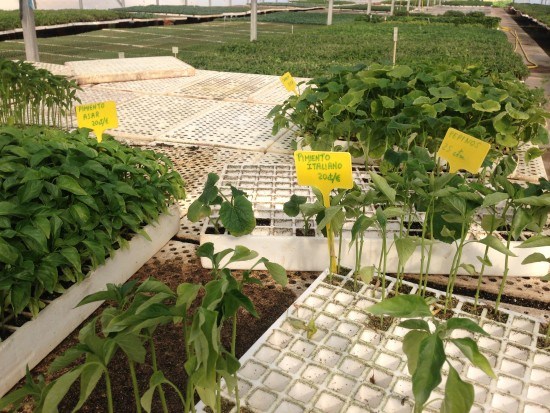
SEEDLINGS
Advantages of buying seedlings
Buying plants already formed, seedlings, can save you many headaches, the most important I summarize below:
You avoid buying seeds of different species to make the seedbed:
If you only want to have a couple of tomato plants or a few onions, it is more convenient and economical (in the short term) to buy the seedlings than an envelope full of seeds, of which you will only use a couple…
You avoid failures in seed germination:
Whether you make a seedbed or sow the seed directly there is always a risk, the seed may not germinate for many reasons, lack or excess of watering, poor substrate, lack of light, lack of time to take care of the seedbed, etc… The seedlings They are already germinated and somewhat developed plants, so you avoid that complicated phase of the growth of your plant.
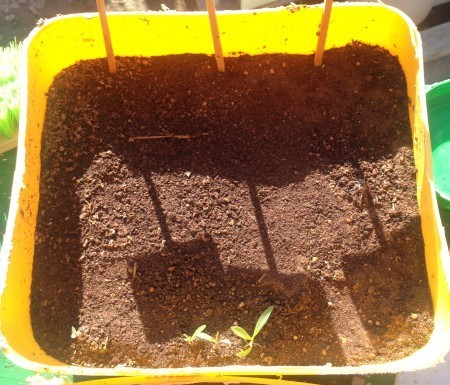
You avoid buying substrates rich in organic matter and disinfected to make the seedbed:
Many times, buying good land to make the seedbeds means traveling far away, so, for simple convenience, we resort to cheap land, the one that we find closest to us, “for 1€ at all. This land is very deficient in nutrients, poor in organic matter and is often not well disinfected, so it can harbor eggs of different harmful insects that end up becoming pests for our crops.
In the event that you want to make a flower pot, this is not true, since you will also have to buy a substrate rich in nutrients, organic matter and disinfected to fill your pots.
Ease of handling and variety of species:
These seedlings already have a well-formed root ball with a considerable number of roots, so you can directly carry out a transplant in the final space that your plant, orchard or flowerpot will occupy. You will also find a multitude of different species to try new things in your garden.
Disadvantages of buying seedlings
Buying seedlings is the easy option, but if you really want to have your own garden, it is healthier and more educational to see how your seeds grow from the beginning. I summarize the cons of buying seedlings below:
Displacement:
Finding nurseries in the interior of cities that sell horticultural seedlings is complicated, and its central location makes its price more expensive, which is why it is often necessary to take the car for a medium trip to peripheral areas or surrounding towns to find your seedlings at a more affordable price. This is not very ecological to buy a few seedlings… If you decide to buy seedlings, I recommend that you talk beforehand with friends or relatives who also want to start their garden to make a decent purchase of seedlings and substrates and thus amortize the trip.

Price:
The seedlings range from €0.20 (in the case of the most popular vegetables: Peppers, tomatoes, onions, lettuce …) to more than €0.40 (in the case of permanent species, seasonal cucurbits, grafts and hybrid species: Melon, watermelon, artichoke, strawberries…). An envelope of seeds is around €2, so in the long run it will be better for you economically.
The best option in this case is still to request the seed from a horticulturist that you know, normally they let a couple of species glean to have seed for the following year and it will not cost them anything to give it to you.
Difficulty finding organic seedlings:
Finding spaces that sell seedlings within the city is already complicated, since it is much more difficult to obtain seedlings from certified organic seed. If you want to have an organic garden, this first step fails. By simple marketing, the seedlings normally come from improved hybrid seeds, so their offspring are infertile, something logical since it «forces» the consumer to buy more seedlings if they decide to continue with the orchard or potted garden the following year, if not with a single seedling we would already have seeds forever.
You won’t learn anything
If you really want to have a garden, you have to learn all the steps to achieve it, from planting to harvesting, through germination, transplants, pruning, harvesting and finally finishing with the plantation. Buying a seedling means that you lose experience on how to make a seedbed and how your plants develop in it. Even if things go wrong, that experience will help you improve the following year and in the long run you won’t have any problems with germination.
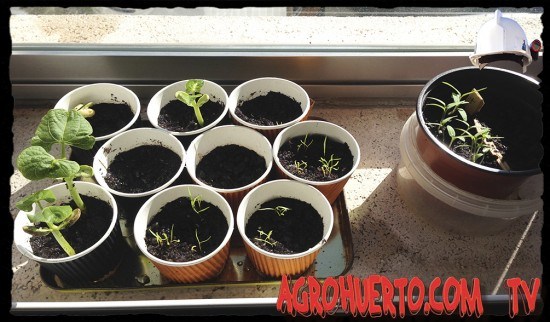
Little more, I hope that with these pros and cons you have a clearer final decision. Buying seedlings is neither better nor worse, it depends on your desire and circumstances. I have done it many times when I am running out of time to make a seedbed or I don’t have seeds of the species I want to plant and the end result is practically the same.
Greetings

![Photo of Ficus Benjamina: [Planting, Care, Irrigation, Substrate and Characteristics]](https://www.complete-gardening.com/wp-content/uploads/2022/08/ficus-benjamina-planting-care-irrigation-substrate-and-characteristics-390x220.jpg)
